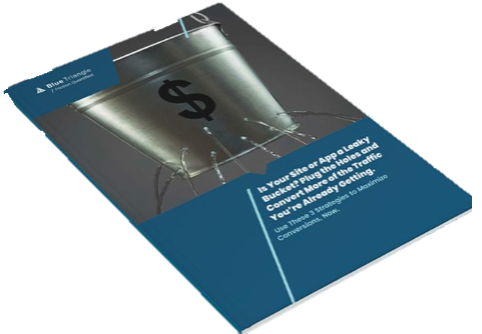Resource Hub
Blue Triangle offers the only complete platform purpose-built for Continuous Experience Optimization powered by Business Outcomes
Topic Category
- Blog
- Web Performance
- Podcast
- user experience
- Digital experience optimization
- Industry Benchmarks
- Ecommerce
- Webinar
- Security
- Website performance
- White Papers
- Marketing Analytics
- Product Announcements
- Tag Governance
- Case Studies
- Accelerator Series
- Conversion rate optimization
- DEM
- Digital Commerce
- Use Cases
- Conversion rate
- Web Development
- Content Security Policy
- Datasheet
- Holiday preparedness
- Experience Design
- News
- Resources
- Ultimate Guides
- Website Design
- eBook
Topic Category
- Blog
- Web Performance
- Podcast
- user experience
- Digital experience optimization
- Industry Benchmarks
- Ecommerce
- Webinar
- Security
- Website performance
- White Papers
- Marketing Analytics
- Product Announcements
- Tag Governance
- Case Studies
- Accelerator Series
- Conversion rate optimization
- DEM
- Digital Commerce
- Use Cases
- Conversion rate
- Web Development
- Content Security Policy
- Datasheet
- Holiday preparedness
- Experience Design
- News
- Resources
- Ultimate Guides
- Website Design
- eBook
Subscribe now to FRICTIONLESS for friction fighting guidance delivered to your inbox twice a month.
A Recession is Here: Digital Experience Optimization First Movers Will Survive and Thrive
A Recession is Here – Only the Digital Experience Optimization (DEO) First Movers Will Survive and Thrive Significant economic changes are coming sooner than we'd like. Even so, MarTech budgets are expanding
5 Fixes You Must Make to Your eCommerce Website Before Black Friday
On Black Friday, every shopper matters. Is your website ready for the holiday surge? (Hint: probably not.) With inflation and recession in the air, shoppers are set to be more discerning than ever this Cyber
.jpg)
